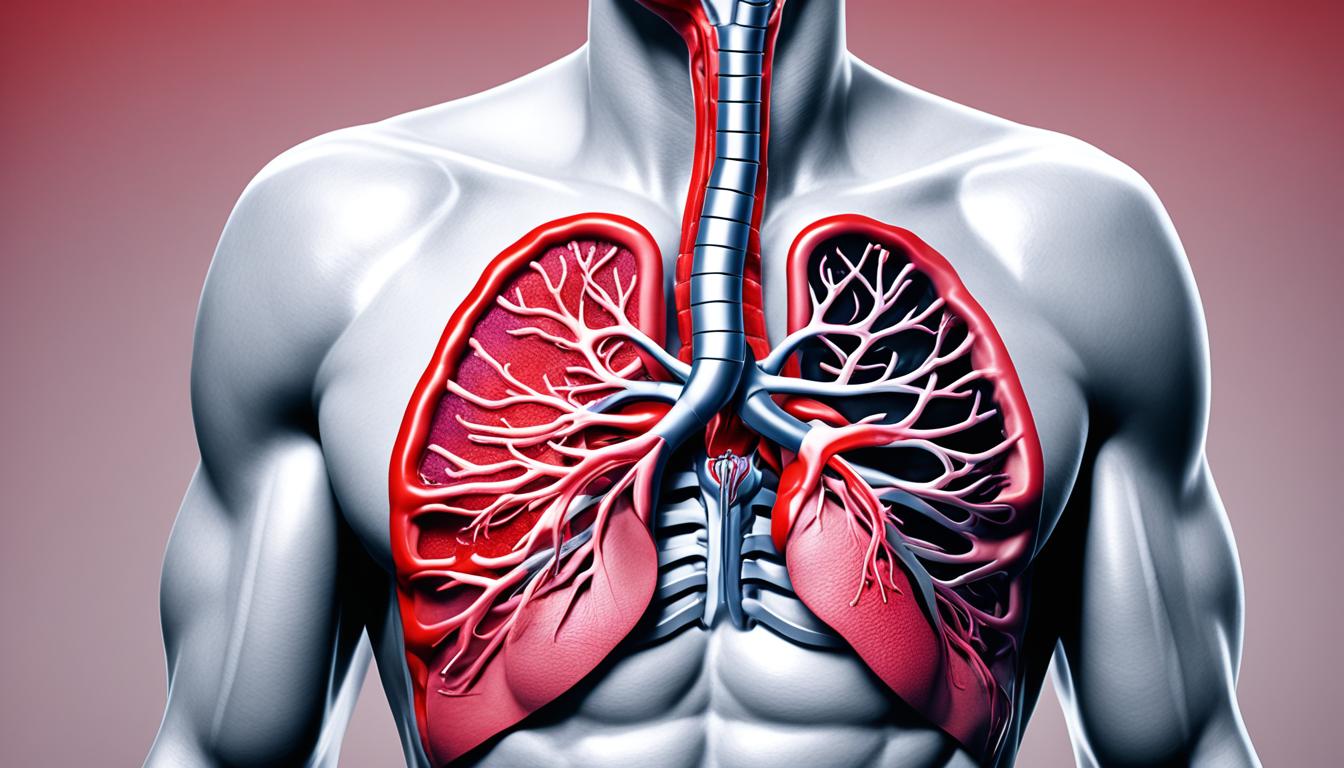Esophageal cancer is a serious type of cancer that affects the esophagus. This is the tube that connects your throat to your stomach. In the United States, it’s the fifth most common type of cancer in the digestive system. Globally, it ranks as the sixth most common cancer. About 16,940 new cases are reported every year in the US alone.
This cancer has two main types: squamous cell carcinoma and adenocarcinoma. Several things can increase your risk of developing esophageal cancer. These include smoking, heavy alcohol use, not eating enough fruits and vegetables, achalasia, and caustic strictures. Some rare conditions, like tylosis and Bloom syndrome, can also play a role.
Doctors diagnose esophageal cancer through several tests. These include upper endoscopy, biopsies, and CT scans. The treatment depends on how advanced the cancer is. Options might include surgery, radiation, and chemotherapy. For some patients, there’s also the option of stem cell therapy. This new approach aims to repair damaged esophageal tissue using stem cells.
Key Takeaways
- Esophageal cancer is a deadly malignancy that affects the esophagus, the tube that carries food from the throat to the stomach.
- It is the fifth most common gastrointestinal cancer in the United States.
- Risk factors for esophageal cancer include a history of smoking, alcohol consumption, a diet low in fruits and vegetables, and certain anatomical diseases.
- Diagnosis involves procedures such as upper endoscopy, biopsies, and imaging tests like computed tomography (CT) scans.
- Treatment options may include surgery, radiation therapy, chemotherapy, and stem cell therapy.
Symptoms and Risk Factors of Esophageal Cancer
Esophageal cancer is a serious illness that needs quick action. Knowing its signs and risks can help you stay healthy. Early intervention is key.
Common Symptoms of Esophageal Cancer
Many people with esophageal cancer find it hard to swallow. At first, it might feel like you’re choking on food. Eventually, even swallowing liquids can become tough. Other signs include:
- Regurgitation
- Persistent bronchitis
- Excessive saliva
- Hoarseness
- Prolonged cough
- Weight loss
- Dark, dry skin
The severity of these symptoms can change. They might not always mean cancer. But, if they continue or get worse, see a doctor right away.
Risk Factors for Esophageal Cancer
Many things can raise your risk of esophageal cancer, such as:
- Smoking and drinking
- Being overweight
- Eating poorly, lacking fruits and veggies
- Having certain health issues, like GERD or Barrett’s, or a history of head and neck cancer
If you have one or more of these risks, take care of yourself. Getting regular check-ups and screenings can help catch esophageal cancer early.
Diagnosis and Treatment of Esophageal Cancer
Diagnosing esophageal cancer starts with a detailed exam. Doctors check the lymph nodes and do imaging tests like upper endoscopy and CT scans. These tests show a close-up of the esophagus and find any tumors or issues. Biopsies are then done to check for cancer cells if a tumor is found.
After an esophageal cancer diagnosis, the next step is figuring out the best treatment. Things like the tumor’s size and if it’s spread, along with the patient’s general health, help decide the plan. There are several ways to treat esophageal cancer. Surgery might be needed to take out the tumor and some tissues around it. Radiation therapy or chemo could be used alone or together to kill off cancer cells. Sometimes, doctors may opt for laser therapy or photodynamic therapy to target cancer cells in the esophagus more directly.
Now, there’s also stem cell therapy as a new treatment for esophageal cancer. This method uses stem cells to fix damaged parts of the esophagus. It’s seen as a promising way to improve how patients do. But, more studies are needed to know how well it works.
If you get an esophageal cancer diagnosis, working closely with your medical team is key. They’ll guide you through your treatment options, considering what’s best for you. The goal is to make a plan that fits your needs, increasing your chances of beating esophageal cancer.

